Tips for Seasonal Allergy Relief
Seasonal allergies, aka allergic rhinitis, and commonly known as hay fever, affect many people during the spring, summer, and fall months. An allergy is the result of a hypersensitive immune reaction to an antigen. Allergic rhinitis is caused by an allergic response to airborne allergens such as pollen, dust mites, pet dander, and mold spores. When these allergens are inhaled, the immune system of a susceptible individual mistakes them for harmful invaders and produces an antibody called immunoglobulin E (IgE) to attack them. This IgE triggers the release of histamine and other compounds, which cause inflammation in the lining of the nose and eyes, leading to the all too familiar symptoms such as sneezing, runny nose, nasal congestion, itching, and watery eyes. Some folks are more susceptible to developing allergic rhinitis than others, and there are a number of factors that can increase one’s risk of developing this condition, including genetics, environmental factors, and other medical conditions. Additionally, certain lifestyle factors, such as smoking and exposure to air pollution, may also increase the risk of developing allergic rhinitis.
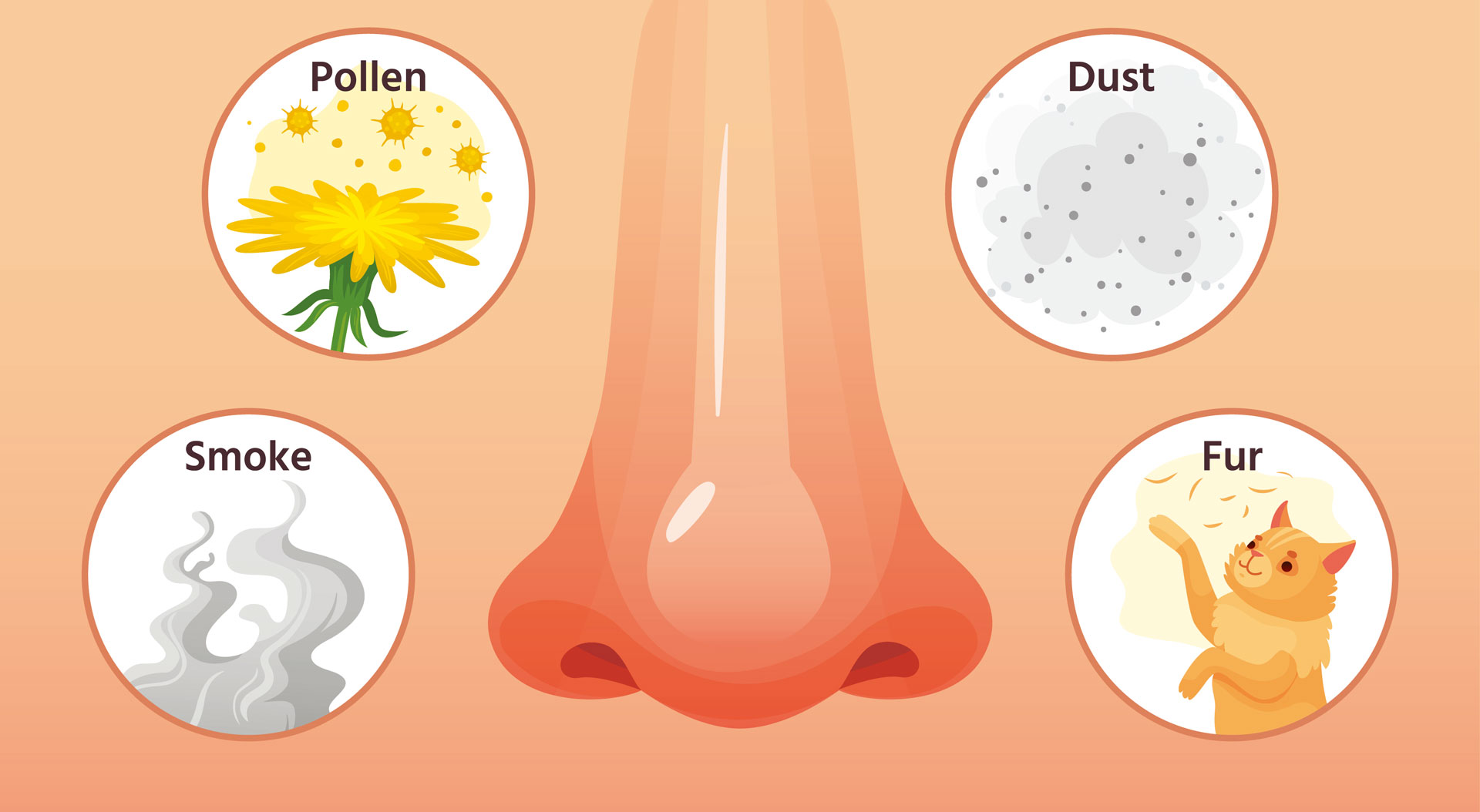 Unfortunately, rhinitis incidence is on the rise with evidence suggesting that allergies are increasing in prevalence. For example, allergic rhinitis (hay fever) affects an estimated 10-30% of the global population, and studies suggest that its prevalence has been increasing over the past few decades. Similarly, the prevalence of food allergies, especially in children, has been on the rise in many parts of the world. There are several theories as to why allergies may be increasing, including changes in diet, lifestyle, and environmental factors.
Unfortunately, rhinitis incidence is on the rise with evidence suggesting that allergies are increasing in prevalence. For example, allergic rhinitis (hay fever) affects an estimated 10-30% of the global population, and studies suggest that its prevalence has been increasing over the past few decades. Similarly, the prevalence of food allergies, especially in children, has been on the rise in many parts of the world. There are several theories as to why allergies may be increasing, including changes in diet, lifestyle, and environmental factors.
Allergic rhinitis is a common condition that is caused by the immune system’s response to airborne allergens such as pollen, dust mites, and animal dander. There are several factors that may contribute to the worsening of allergic rhinitis, including:
- Climate change: Rising temperatures, changes in precipitation patterns, and increased carbon dioxide levels can lead to longer and more intense allergy seasons.
- Air pollution: Exposure to pollutants such as ozone, nitrogen dioxide, and particulate matter can exacerbate allergic rhinitis symptoms and make them more severe.
- Increased urbanization: The increasing number of people living in urban areas may contribute to the rising prevalence of allergic rhinitis, as urban environments can have higher levels of pollution and allergens.
- Changes in lifestyle: Western-style diets, decreased physical activity, and changes in the use of antibiotics may affect the immune system and increase susceptibility to allergies.
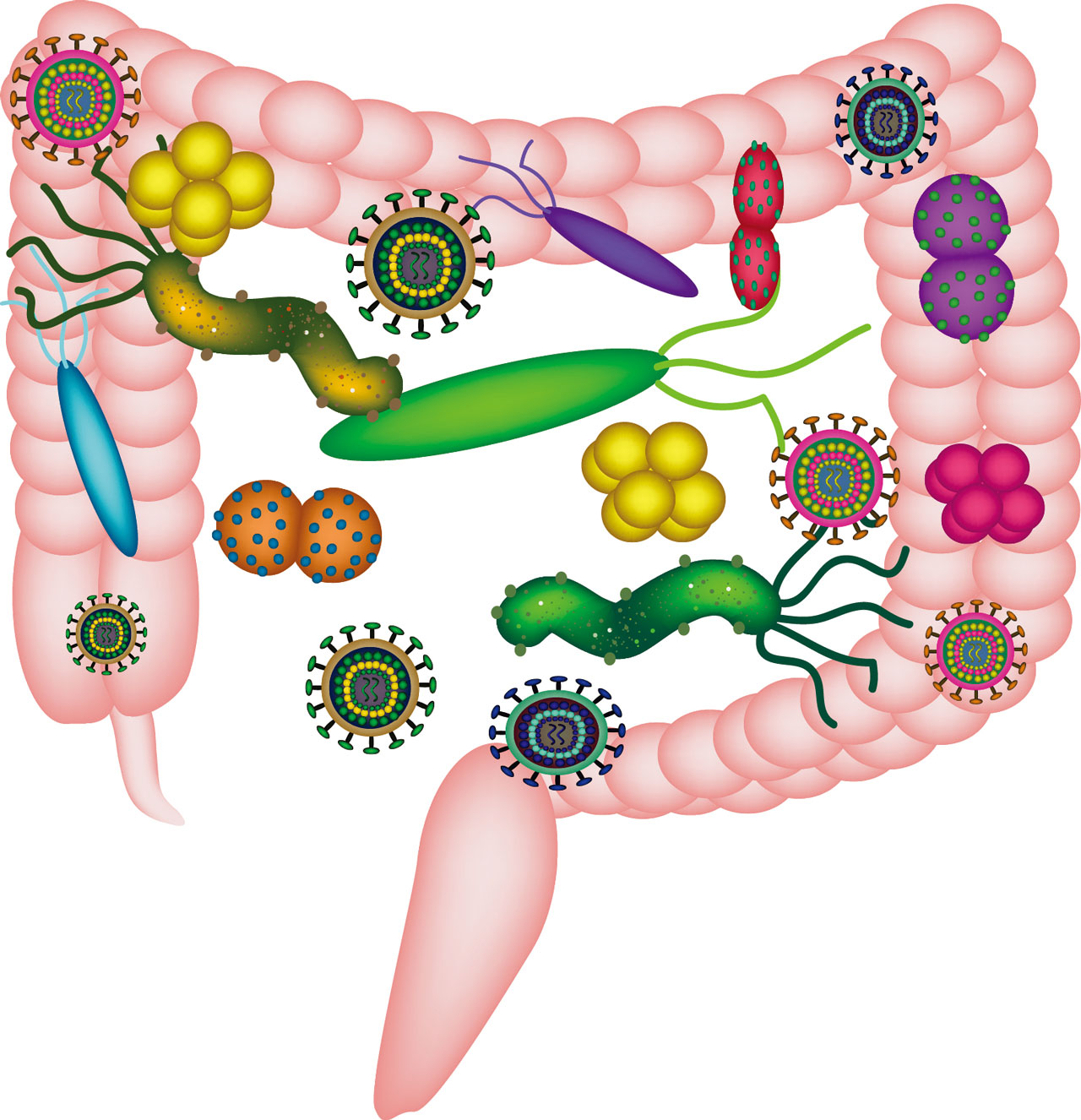 Dysbiosis: A growing body of research has confirmed what traditional wisdom has recognized for centuries, the fundamental importance of gut health to health overall, and this gut health is dependent upon a healthy balance microbiome. A review of 23 studies found that probiotics improved symptoms of allergic rhinitis.
Dysbiosis: A growing body of research has confirmed what traditional wisdom has recognized for centuries, the fundamental importance of gut health to health overall, and this gut health is dependent upon a healthy balance microbiome. A review of 23 studies found that probiotics improved symptoms of allergic rhinitis.
It’s important to note that these factors may affect different people in different ways, and some individuals may be more susceptible to the worsening of allergic rhinitis symptoms than others.
Natural Relief
While over-the-counter medications can be effective, there are also several holistic and natural ways to treat seasonal allergies:
- Avoid allergens: Limiting exposure to allergens such as pollen, mold, and dust can help reduce symptoms. Stay indoors on windy days, keep windows closed, and use air conditioning instead of opening windows. When out, wearing a brimmed hat and glasses may help cut down contact with allergens as well. And remember to vacuum, dust, and vacuum frequently.
- Saline nasal irrigation (Neti): This involves using a saline solution to flush out the nasal passages, which can help reduce inflammation and relieve congestion. * Always use distilled or purified water, NEVER tap water.
- Herbal remedies: Some herbs, such as nettle leaf and butterbur, and mushroom, especially Reishi, have natural antihistamine properties and may help reduce allergy symptoms. (see more detail below)*
- Probiotics: Probiotics are good bacteria that live in your gut and may help strengthen your immune system, reducing your body’s reaction to allergens.*
- Essential oils: Certain essential oils, such as peppermint, eucalyptus, and lavender, may help relieve allergy symptoms when diffused or applied topically, always employing a carrier oil. Peppermint and frankincense are particularly helpful with peppermint exhibiting an anti-inflammatory action. A study using frankincense showed that it may help prevent perennial allergic rhinitis.*
 Eating a healthy diet: Eating a balanced diet rich in fruits, vegetables, and whole grains can help support your immune system and reduce inflammation. Eat the rainbow.
Eating a healthy diet: Eating a balanced diet rich in fruits, vegetables, and whole grains can help support your immune system and reduce inflammation. Eat the rainbow.
Several mushrooms have been studied for their potential to help with seasonal allergies due to their immune-modulating and anti-inflammatory effects. Here are some mushrooms that may be beneficial:
- Reishi (Ganoderma lucidum): Reishi is a medicinal mushroom that has been traditionally used in Chinese medicine for its immune-modulating properties. Studies have suggested that Reishi may help reduce inflammation and allergic responses in the body, potentially alleviating allergy symptoms. Make sure your Reishi is extracted and uses a double extraction of hot water and alcohol.*
- Cordyceps (Cordyceps sinensis): Cordyceps is a fungus that has been traditionally used in Tibetan and Chinese medicine for its anti-inflammatory and immune-modulating effects. Some studies have suggested that Cordyceps may help reduce inflammation and allergic responses in the body, potentially alleviating allergy symptoms.*
- Maitake (Grifola frondosa): Maitake is a mushroom that has been traditionally used in Japanese medicine for its immune-modulating properties. Some studies have suggested that Maitake may help reduce inflammation and allergic responses in the body, potentially alleviating allergy symptoms.*
- Shiitake (Lentinula edodes): Shiitake is a mushroom that has been traditionally used in Chinese medicine for its immune-modulating and anti-inflammatory effects. Some studies have suggested that shiitake may help reduce inflammation and alleviate allergy symptoms.*
- Royal Agaricus (Agaricus blazei): Studies have found that it may help balance the immune system response by balancing the Th1 to Th2 ratio, and that it may limit the release of histamine.*
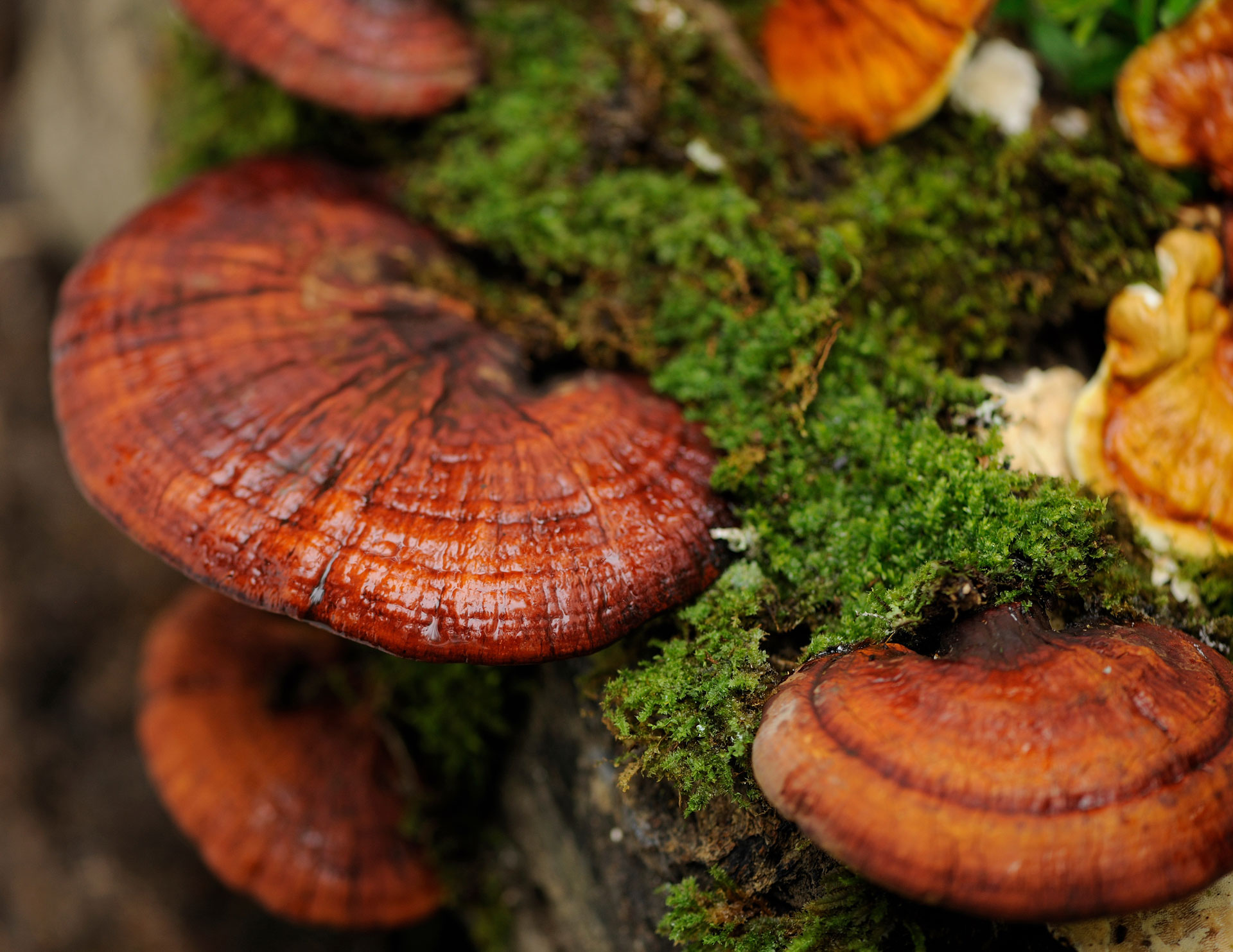 Reishi (Ganoderma lucidum) is a type of medicinal mushroom that has been used in traditional Chinese medicine for thousands of years to support the immune system, fight inflammation, and alleviate allergy symptoms*. While research is still limited, there is evidence to suggest that Reishi may help reduce the symptoms of seasonal allergies. Reishi contains compounds called triterpenes, which have been shown to have anti-inflammatory properties. Inflammation is a common symptom of allergic reactions, and by reducing inflammation, Reishi may help alleviate symptoms such as nasal congestion, sneezing, and itchy eyes. Reishi is also an immunomodulator, which means it can help regulate the immune system. In people with seasonal allergies, the immune system can overreact to allergens, leading to symptoms such as runny nose, coughing, and wheezing. Reishi may help regulate the immune response and reduce the severity of these symptoms. Additionally, Reishi contains polysaccharides, which have been shown to have antihistamine properties. Histamines are released by the immune system in response to allergens, causing the symptoms of an allergic reaction. By inhibiting the release of histamines, Reishi may help reduce allergy symptoms.*
Reishi (Ganoderma lucidum) is a type of medicinal mushroom that has been used in traditional Chinese medicine for thousands of years to support the immune system, fight inflammation, and alleviate allergy symptoms*. While research is still limited, there is evidence to suggest that Reishi may help reduce the symptoms of seasonal allergies. Reishi contains compounds called triterpenes, which have been shown to have anti-inflammatory properties. Inflammation is a common symptom of allergic reactions, and by reducing inflammation, Reishi may help alleviate symptoms such as nasal congestion, sneezing, and itchy eyes. Reishi is also an immunomodulator, which means it can help regulate the immune system. In people with seasonal allergies, the immune system can overreact to allergens, leading to symptoms such as runny nose, coughing, and wheezing. Reishi may help regulate the immune response and reduce the severity of these symptoms. Additionally, Reishi contains polysaccharides, which have been shown to have antihistamine properties. Histamines are released by the immune system in response to allergens, causing the symptoms of an allergic reaction. By inhibiting the release of histamines, Reishi may help reduce allergy symptoms.*
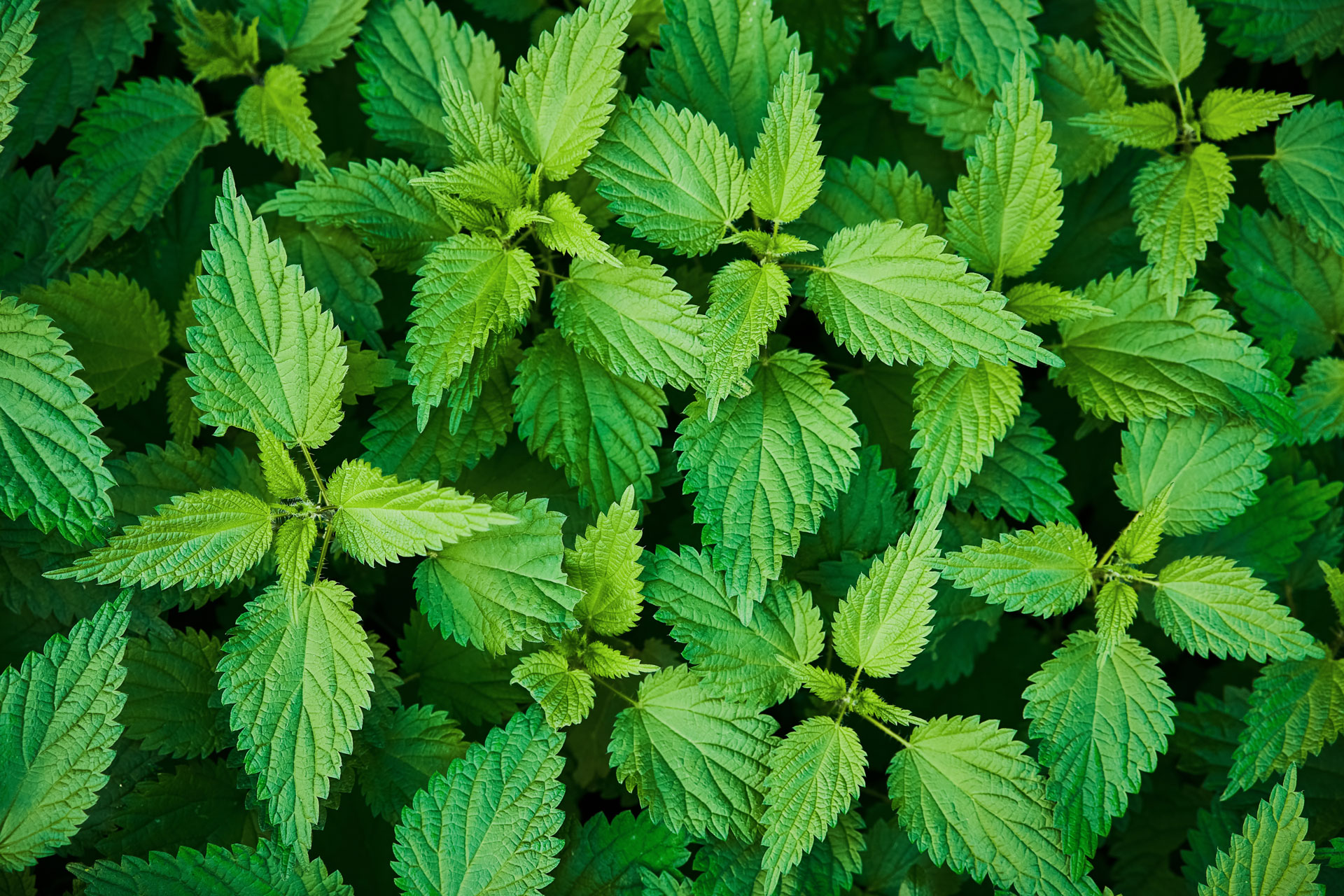 Nettle (Urtica dioica) is a natural herb that has been used for centuries to treat various ailments, including seasonal allergies. Nettles contain a natural antihistamine, which can help reduce allergy symptoms such as runny nose, itchy eyes, and sneezing. Histamines are released by the immune system in response to allergens, causing the symptoms of an allergic reaction. Nettle leaf extract has been shown to inhibit the release of histamines, reducing inflammation and improving allergy symptoms. The extract also contains compounds that may reduce the production of prostaglandins, which are responsible for causing inflammation in the body. In addition to its antihistamine properties, nettle also acts as a natural decongestant, helping to clear the sinuses and reduce nasal congestion. This can be especially helpful for those who suffer from allergic rhinitis, which causes inflammation in the nasal passages. Overall, nettle can be an effective natural remedy for seasonal allergies. However, as with any herbal supplement, it’s important to speak with your healthcare provider before using it, especially if you’re pregnant, breastfeeding, or taking other medications.*
Nettle (Urtica dioica) is a natural herb that has been used for centuries to treat various ailments, including seasonal allergies. Nettles contain a natural antihistamine, which can help reduce allergy symptoms such as runny nose, itchy eyes, and sneezing. Histamines are released by the immune system in response to allergens, causing the symptoms of an allergic reaction. Nettle leaf extract has been shown to inhibit the release of histamines, reducing inflammation and improving allergy symptoms. The extract also contains compounds that may reduce the production of prostaglandins, which are responsible for causing inflammation in the body. In addition to its antihistamine properties, nettle also acts as a natural decongestant, helping to clear the sinuses and reduce nasal congestion. This can be especially helpful for those who suffer from allergic rhinitis, which causes inflammation in the nasal passages. Overall, nettle can be an effective natural remedy for seasonal allergies. However, as with any herbal supplement, it’s important to speak with your healthcare provider before using it, especially if you’re pregnant, breastfeeding, or taking other medications.*
Butterbur (Petasites hybridus) is a natural herb that has been used for centuries to treat various ailments, including seasonal allergies. The active compounds in butterbur, called petasins, have been shown to have anti-inflammatory properties and to inhibit the release of histamines, which are chemicals released by the immune system in response to allergens and that cause allergic symptoms. 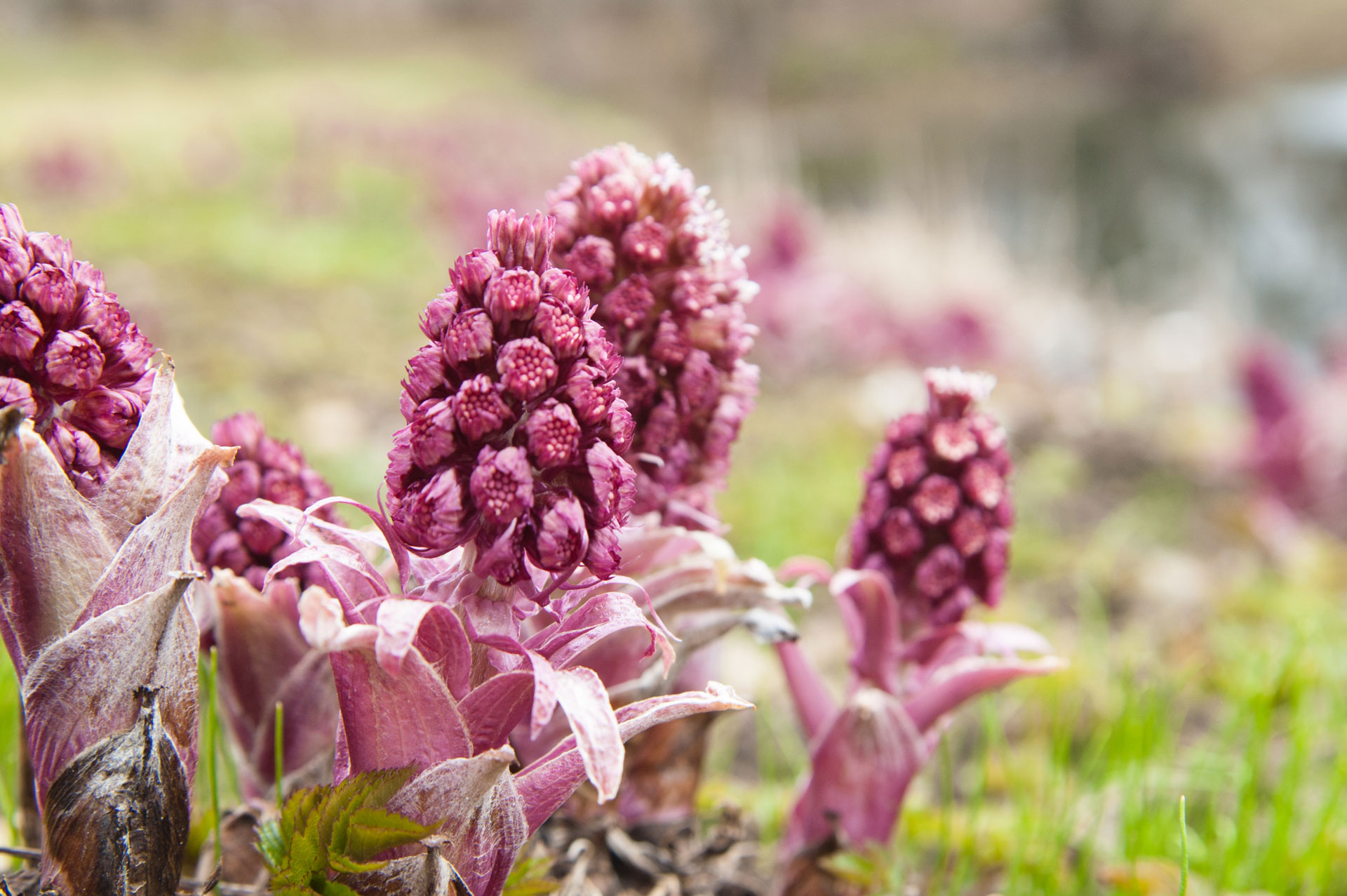 Several clinical studies have shown that butterbur can be effective in reducing the symptoms of seasonal allergies. In one study, participants taking a butterbur extract reported significant improvement in their allergy symptoms, including sneezing, runny nose, and itchy eyes, compared to a placebo group. In another study, butterbur was found to be as effective as the antihistamine cetirizine in reducing symptoms of allergic rhinitis. Butterbur is thought to work by blocking leukotrienes, which are inflammatory molecules that can cause airway constriction and other allergy symptoms. It has been suggested that butterbur may have similar benefits to traditional antihistamines, but with fewer side effects, in fact, one study found it to be as effective as a commonly used antihistamine.*
Several clinical studies have shown that butterbur can be effective in reducing the symptoms of seasonal allergies. In one study, participants taking a butterbur extract reported significant improvement in their allergy symptoms, including sneezing, runny nose, and itchy eyes, compared to a placebo group. In another study, butterbur was found to be as effective as the antihistamine cetirizine in reducing symptoms of allergic rhinitis. Butterbur is thought to work by blocking leukotrienes, which are inflammatory molecules that can cause airway constriction and other allergy symptoms. It has been suggested that butterbur may have similar benefits to traditional antihistamines, but with fewer side effects, in fact, one study found it to be as effective as a commonly used antihistamine.*
It’s important to note that raw butterbur contains compounds that can be toxic to the liver and kidneys, so it’s important to use a standardized, purified butterbur extract that has been processed to remove these harmful compounds. As with any herbal supplement, it’s also important to speak with a healthcare provider before using butterbur, especially if you’re pregnant, breastfeeding, or taking other medications.
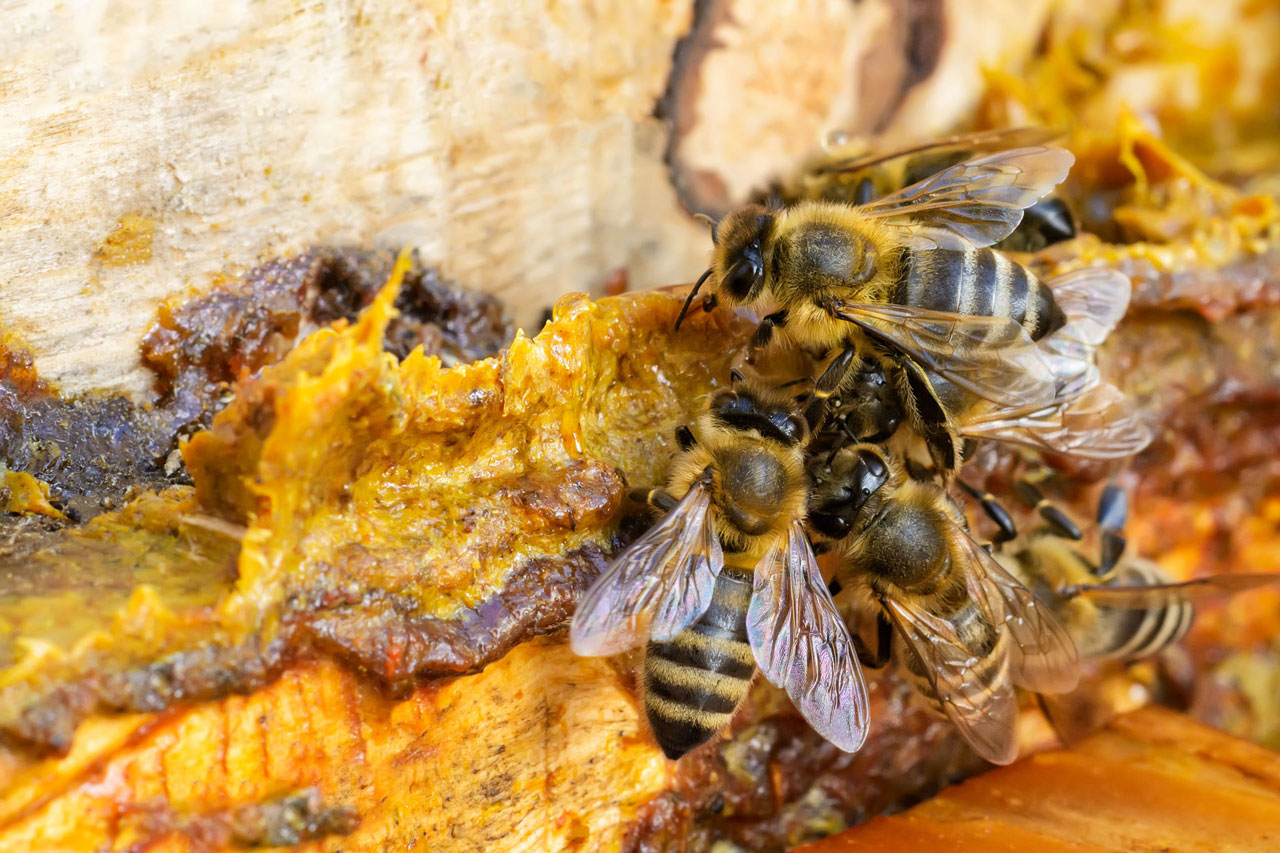 Propolis is a resinous substance produced by bees from tree resin and other plant sources. It has been traditionally used in folk medicine for its antimicrobial, anti-inflammatory, and immune-stimulating properties, all of which have been confirmed by recent research. Some studies have suggested that propolis may be beneficial for people with seasonal allergies due to its anti-inflammatory and immune-modulating effects. One study published in the International Archives of Allergy and Immunology found that propolis extract inhibited the release of histamine from mast cells, which are immune cells involved in allergic responses. Histamine is a chemical that can cause inflammation and allergic symptoms like itching, sneezing, and runny nose. By inhibiting histamine release, propolis extract may help reduce allergic responses in the body. Another study published in the Journal of Ethnopharmacology found that propolis extract had anti-inflammatory effects in rats with allergic rhinitis. The researchers concluded that propolis extract may have potential as a natural treatment for allergic rhinitis, although more research is needed to confirm these findings in humans.*
Propolis is a resinous substance produced by bees from tree resin and other plant sources. It has been traditionally used in folk medicine for its antimicrobial, anti-inflammatory, and immune-stimulating properties, all of which have been confirmed by recent research. Some studies have suggested that propolis may be beneficial for people with seasonal allergies due to its anti-inflammatory and immune-modulating effects. One study published in the International Archives of Allergy and Immunology found that propolis extract inhibited the release of histamine from mast cells, which are immune cells involved in allergic responses. Histamine is a chemical that can cause inflammation and allergic symptoms like itching, sneezing, and runny nose. By inhibiting histamine release, propolis extract may help reduce allergic responses in the body. Another study published in the Journal of Ethnopharmacology found that propolis extract had anti-inflammatory effects in rats with allergic rhinitis. The researchers concluded that propolis extract may have potential as a natural treatment for allergic rhinitis, although more research is needed to confirm these findings in humans.*
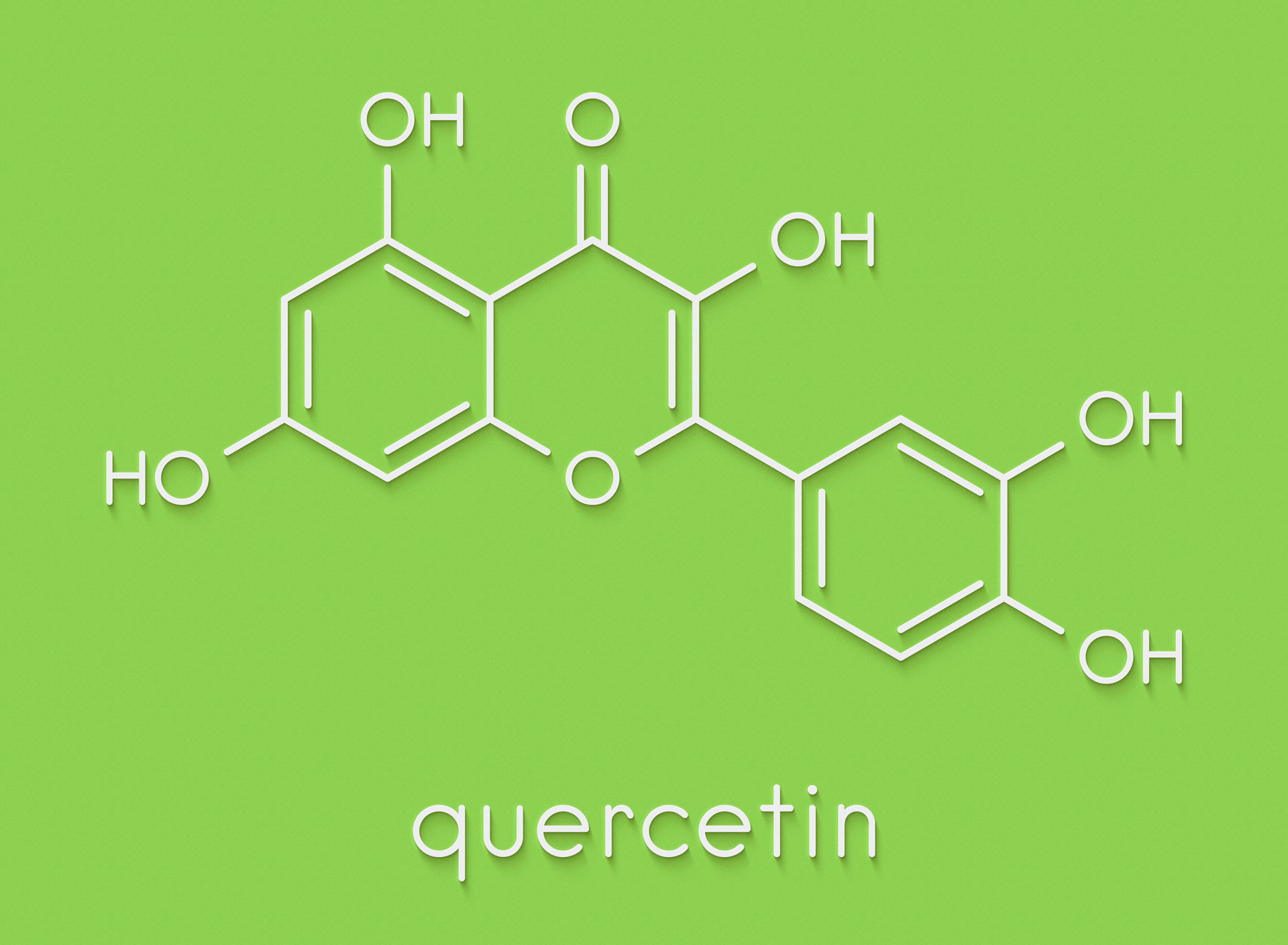 Quercetin is a flavonoid, found in tea, apples, berries, onions, cruciferous vegetables, that has anti-inflammatory and antioxidant properties. It is believed to help with rhinitis by reducing the release of histamine and other inflammatory chemicals that contribute to the symptoms of allergic rhinitis. Studies have shown that quercetin can inhibit the production of histamine by immune cells called mast cells, which are involved in the allergic response. By reducing histamine levels, quercetin may help to reduce the symptoms of allergic rhinitis, such as nasal congestion, sneezing, and itchy eyes. In addition, quercetin has been shown to have antioxidant properties, which may help to protect against the damaging effects of free radicals on the body’s cells. This may be particularly beneficial for people with allergic rhinitis, as inflammation and oxidative stress can worsen the symptoms of this condition.*
Quercetin is a flavonoid, found in tea, apples, berries, onions, cruciferous vegetables, that has anti-inflammatory and antioxidant properties. It is believed to help with rhinitis by reducing the release of histamine and other inflammatory chemicals that contribute to the symptoms of allergic rhinitis. Studies have shown that quercetin can inhibit the production of histamine by immune cells called mast cells, which are involved in the allergic response. By reducing histamine levels, quercetin may help to reduce the symptoms of allergic rhinitis, such as nasal congestion, sneezing, and itchy eyes. In addition, quercetin has been shown to have antioxidant properties, which may help to protect against the damaging effects of free radicals on the body’s cells. This may be particularly beneficial for people with allergic rhinitis, as inflammation and oxidative stress can worsen the symptoms of this condition.*
Since quercetin has a poor bio-availability, look for the new products out using a highly bio-available quercetin phytosome.
 Fermented foods and Probiotics: Gut dysbiosis refers to an imbalance in the gut microbiome, which can affect various aspects of health, including the immune system. Rhinitis, on the other hand, is an inflammation of the nasal mucous membranes that can cause symptoms such as congestion, runny nose, and sneezing. Studies suggest that there is a connection between gut dysbiosis and the development of allergic diseases such as rhinitis. The gut microbiome plays a crucial role in the development and regulation of the immune system, and imbalances in the gut microbiome can lead to immune dysfunction and inflammation. This, in turn, can promote the development of allergies and allergic diseases. One proposed mechanism for how gut dysbiosis can contribute to rhinitis is through the gut-lung axis. The gut and lungs are connected by a network of immune cells and signaling molecules, which means that changes in the gut microbiome can affect the respiratory system. An imbalance in the gut microbiome can lead to the production of inflammatory cytokines that can promote allergic reactions and inflammation in the respiratory system, including the nasal mucous membranes. Furthermore, a healthy gut microbiome can help regulate the immune system’s response to allergens, preventing an excessive or inappropriate immune response that can lead to rhinitis and other allergic diseases.*
Fermented foods and Probiotics: Gut dysbiosis refers to an imbalance in the gut microbiome, which can affect various aspects of health, including the immune system. Rhinitis, on the other hand, is an inflammation of the nasal mucous membranes that can cause symptoms such as congestion, runny nose, and sneezing. Studies suggest that there is a connection between gut dysbiosis and the development of allergic diseases such as rhinitis. The gut microbiome plays a crucial role in the development and regulation of the immune system, and imbalances in the gut microbiome can lead to immune dysfunction and inflammation. This, in turn, can promote the development of allergies and allergic diseases. One proposed mechanism for how gut dysbiosis can contribute to rhinitis is through the gut-lung axis. The gut and lungs are connected by a network of immune cells and signaling molecules, which means that changes in the gut microbiome can affect the respiratory system. An imbalance in the gut microbiome can lead to the production of inflammatory cytokines that can promote allergic reactions and inflammation in the respiratory system, including the nasal mucous membranes. Furthermore, a healthy gut microbiome can help regulate the immune system’s response to allergens, preventing an excessive or inappropriate immune response that can lead to rhinitis and other allergic diseases.*
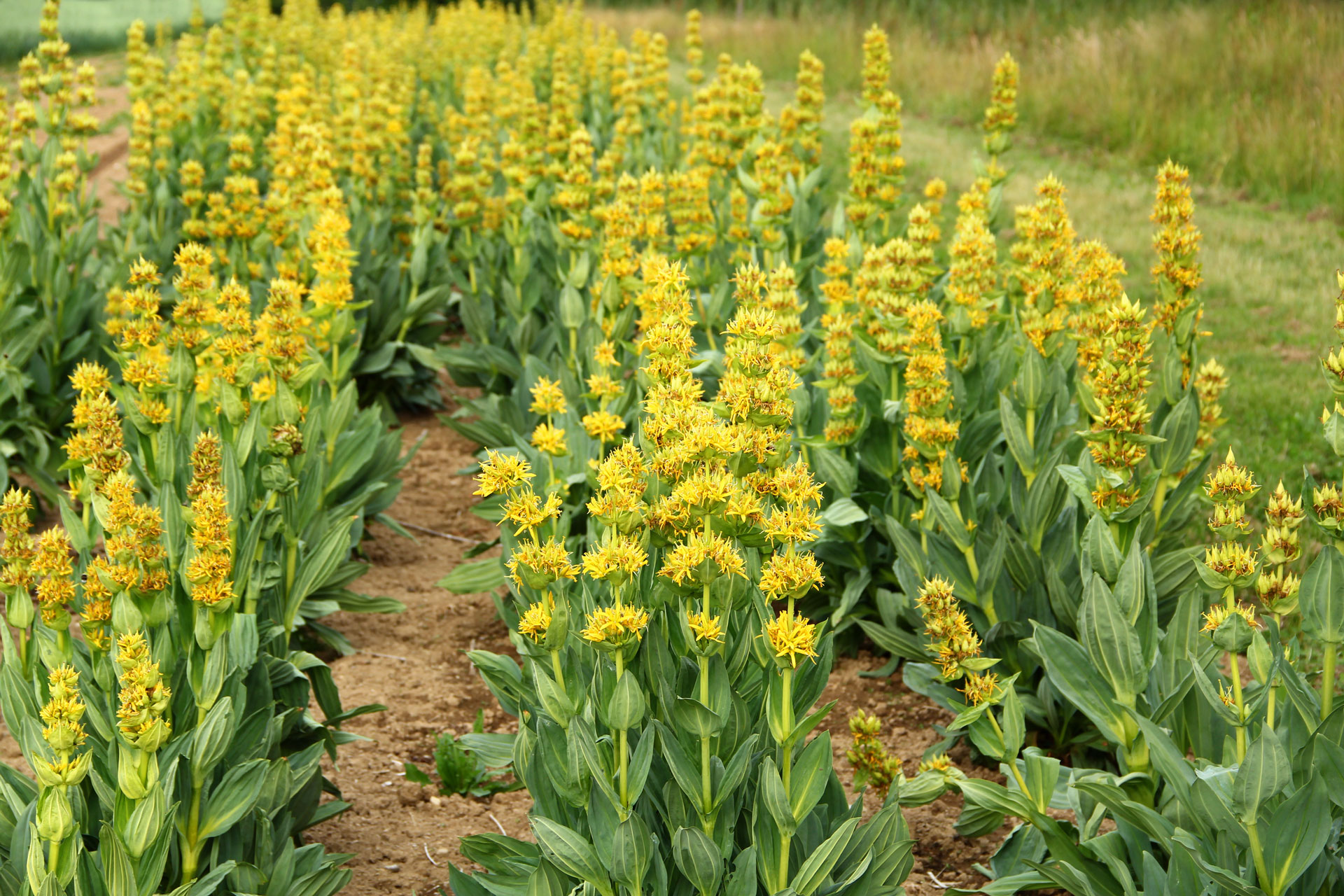 Bitters are a class of herbal remedies that have traditionally been used to stimulate the digestive system and support liver function. While bitters are not typically used specifically for the treatment of seasonal allergies, they may indirectly help to alleviate allergy symptoms by improving digestion and liver function. The liver plays a key role in detoxifying the body, including removing allergens and other toxins from the bloodstream. By improving liver function, bitters can help support the body’s natural detoxification processes and reduce the overall burden on the immune system, potentially reducing allergy symptoms. Bitters also help stimulate the production of digestive juices, which can help break down food more efficiently. This can improve the absorption of nutrients, reducing the risk of nutritional deficiencies that can weaken the immune system and exacerbate allergy symptoms. In addition, some bitters contain anti-inflammatory compounds, which can help reduce inflammation in the body and alleviate allergy symptoms such as nasal congestion, sneezing, and itchy eyes. It’s important to note that while bitters are generally considered safe, they should not be used by individuals with ulcers, gallstones, or other digestive disorders. As with any herbal supplement, it’s also important to speak with a healthcare provider before using bitters, especially if you’re pregnant, breastfeeding, or taking other medications.
Bitters are a class of herbal remedies that have traditionally been used to stimulate the digestive system and support liver function. While bitters are not typically used specifically for the treatment of seasonal allergies, they may indirectly help to alleviate allergy symptoms by improving digestion and liver function. The liver plays a key role in detoxifying the body, including removing allergens and other toxins from the bloodstream. By improving liver function, bitters can help support the body’s natural detoxification processes and reduce the overall burden on the immune system, potentially reducing allergy symptoms. Bitters also help stimulate the production of digestive juices, which can help break down food more efficiently. This can improve the absorption of nutrients, reducing the risk of nutritional deficiencies that can weaken the immune system and exacerbate allergy symptoms. In addition, some bitters contain anti-inflammatory compounds, which can help reduce inflammation in the body and alleviate allergy symptoms such as nasal congestion, sneezing, and itchy eyes. It’s important to note that while bitters are generally considered safe, they should not be used by individuals with ulcers, gallstones, or other digestive disorders. As with any herbal supplement, it’s also important to speak with a healthcare provider before using bitters, especially if you’re pregnant, breastfeeding, or taking other medications.
There are many bitter herbs that have been traditionally used to stimulate digestion and support liver function.* Here are a few of the most commonly used bitter herbs:
- Dandelion (Taraxacum officinale): Dandelion leaves, roots, and flowers are all used as bitter herbs. Dandelion is thought to stimulate the liver and improve digestion.*
- Gentian (Gentiana lutea): Gentian root, the king of bitters, is a very bitter herb that has been traditionally used to stimulate digestion and appetite.*
- Wormwood (Artemisia absinthium): Wormwood is a bitter herb that has been traditionally used to support liver function and stimulate digestion.*
- Burdock (Arctium lappa): Burdock root is a bitter herb that is used to support liver and kidney function and to improve digestion.*
- Yellow dock (Rumex crispus): Yellow dock root is a bitter herb that is used to support liver function and improve digestion.*
- Artichoke (Cynara scolymus): Artichoke leaves contain bitter compounds that can stimulate digestion and support liver function.*
- Chamomile (Matricaria chamomilla): Chamomile flowers contain bitter compounds that can stimulate digestion and relieve digestive discomfort.*
- Milk thistle (Silybum marianum): Milk thistle seeds contain a compound called silymarin, which has been shown to support liver function and protect liver cells from damage.*
- Reishi (Ganoderma lucidum): As if everything mentioned above was not enough support for the use of Reishi, it does have a bitter taste… if the triterpenes are present as in an alcohol extracted product. The triterpenes are essential for some of Reishi’s immune-modulatory and anti-inflammatory activities. *
Find What Works For You
It’s important to note that while these natural remedies can be effective, they may not work for everyone. It’s always a good idea to consult with a healthcare professional before trying any new treatment for allergies. And, as with all immune imbalances, taking a holistic approach is always helpful.
